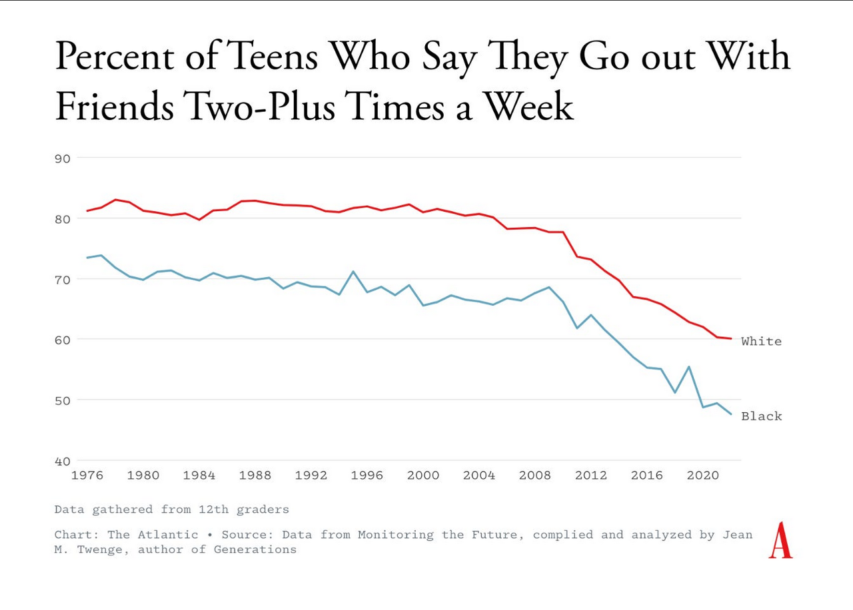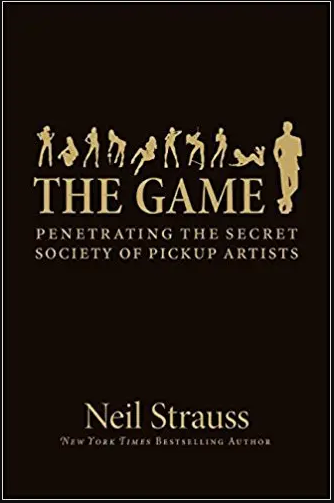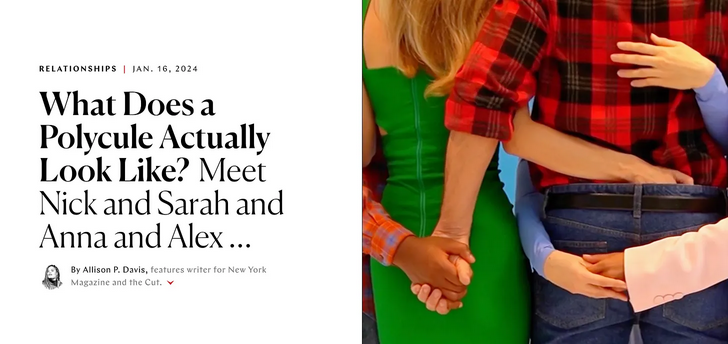History Hit
Published Dec 15, 2023They’re famously thought of as a buttoned up prudish bunch, but we all know they loved to bump uglies as much as anyone today.
Were the spanking punishments of boarding schools really the origins of brothels? Who were the pin-ups of Victorian women? And what did the saucy portrait Queen Victoria gave to Prince Albert look like?
Today we go Betwixt the Victorian Sheets with Dan Snow, from History Hit sister podcast Dan Snow’s History Hit, to find out all about Victorian relationships.
(more…)
April 24, 2024
What Were Victorian Attitudes Towards Sex?
March 25, 2024
One major change in sexual behaviour since the mid-20th century
David Friedman usually blogs about economics, medieval cooking, or politics. His latest post carefully avoids (almost) all of that:

I didn’t have a convenient graphic to use for this post … but I know not to Google something like this.
My picture of sexual behavior now and in the past is based on a variety of readily observable sources — free online porn for the present, writing, both pornography and non-pornographic but explicit, for the past. On that imperfect and perhaps misleading evidence the pattern of when oral sex was or was not common in our society in recent centuries is the opposite of what one would, on straightforward economic grounds, expect.
Casanova’s memoirs provide a fascinating picture of eighteenth century Europe, including its sexual behavior. He mentions incest, male homosexuality, lesbianism, which he regards as normal for unmarried girls:
Marton told Nanette that I could not possibly be ignorant of what takes place between young girls sleeping together.
“There is no doubt,” I said, “that everybody knows those trifles …
I do not believe he ever mentions either fellatio or cunnilingus. Neither does Fanny Hill, published in London in 1748, when Casanova was twenty-three.
Frank Harris, writing in the early 20th century, is familiar with cunnilingus, uses it as a routine part of his seduction tactics, but treats it as something sufficiently exotic so that he had to be talked into trying it by a woman unwilling to risk pregnancy. I do not think he ever mentions fellatio.
Modern online porn in contrast treats both fellatio and cunnilingus as normal parts of foreplay, what routinely comes between erotic kissing and vaginal intercourse.
One online article on the history of fellatio that I found dated the change in attitudes to after the 1976 Hite Report, which found a strongly negative attitude among women to performing it. In contrast:
Today, the act is something more like bread before dinner: noteworthy only if it’s absent. (Fifty Shades of Grey and How One Sex Act Went Mainstream)
And from another, present behavior:
Oral sex precedes and often replaces sexual intercourse because it’s perceived to be noncommittal, quick and safe. For some kids it’s a cool thing to do; for others it’s a cheap thrill. Raised in a culture in which speed is valued, kids, not surprisingly, seek instant gratification through oral sex (the girl by instantly pleasing the boy, the boy by sitting back and enjoying the ride). A seemingly facile command over the sexual landscape of one’s partner is achieved without the encumbrances of clothes, coitus and the rest of the messy business. The blow job is, in essence, the new joystick of teen sexuality. (Salon)
Contrasted with:
When I was a teenager, in the bad-taste, disco-fangled ’70s, fellatio was something you graduated into. Rooted in the great American sport of baseball, the sexual metaphors of my generation put fellatio somewhere after home base, way off in the distant plains of the outfield. In fact, skipping all the bases and going directly to fellatio was the sort of home run reserved only for racy, borderline delinquents, who enjoyed a host of licentious and forbidden activities that made them stars in the firmament of teen recklessness.
March 10, 2024
March 8, 2024
A fresh look at the PUA “bible”
In UnHerd, Kat Rosenfield considers the original pick-up artist bible, The Game by Neil Strauss, in light of more than a decade of changes in how moderns approach relationships with the opposite sex:
A decade letter, I’m struck by the astonishing prescriptiveness of this line: the notion that any sexual encounter preceded by flirtation, negotiation, or indeed any assessment of a suitor’s desirability should be understood as “less-than-ideal” — and that any man who seeks to make himself desirable to an as-yet-uncertain woman is doing something inherently sleazy. Granted, the anti-Game backlash began in the form of reasonable scrutiny of controversial seduction techniques like “negging” (a slightly backhanded compliment deployed for the sake of flirtation).
But since then it has morphed into something much stranger: the idea that anything a man does to impress a woman, from basic grooming to speaking in complete sentences, should be viewed with suspicion. Behind this is the same low-trust mindset that leads women to treat every date as a hunt for the red flags that reveal her suitor as a secret monster. If he compliments you? That’s lovebombing, which means he’s an abuser. If he doesn’t compliment you, that’s withholding, which also means he’s an abuser. Other alleged “red flags” include oversharing, undersharing, paying for the date, not paying for the date, being too eager, being five minutes late, and drinking water — or worse, drinking water through a straw.
Today, the turn against pick-up artistry can be understood at least in part as a reaction against some of its more prominent contemporary practitioners, including men such as Andrew Tate, who makes Mystery look like a catch by comparison. But it is also no doubt an outgrowth of a culture in which male sexuality has effectively been characterised as inherently predatory, while female sexuality is seen as virtually non-existent. The question that seduction manuals once aimed to answer — “how do I, a shy young man, successfully and confidently approach women?” — is now, in itself, a red flag, one likely to provoke anything from squawking indignation to abject horror to bystanders wondering if they ought to call the police. That you are even thinking of approaching women just goes to show what a troglodyte you really are. What do women want? The contemporary answer appears to be: to be left alone, forever, until they die — or to meet someone in a safe and sanitised way, via dating app … although even that option is increasingly positioned as inherently dangerous.
Meanwhile, I was surprised upon revisiting The Game to realise that the strategies contained within the book are not just useful but mostly in keeping with more traditional dating and courtship advice, from “peacocking” (wearing something eye-catching or unusual that can act as a conversation starter), to passing “shit tests” (responding with humour and confidence when a woman teases you). Even the much-derided negging wasn’t originally designed with the goal of insulting or belittling women, but rather to teach men how to talk to them without fawning and drooling all over the place. In the end, the message of The Game is more or less identical to the one in popular women’s dating guides, like The Rules or He’s Just Not That Into You: that confidence is sexy, and naked desperation is a turnoff.
And while this may just be a function of one too many viewings of the BBC’s Pride & Prejudice (featuring Mr Darcy, a man in possession of £50,000 a year and an absolutely legendary negging game), I wonder if the aim of seduction guides is, paradoxically, to restore our confidence in the tension, the mystery, and the playfulness of courtship in the age of the casual hookup. Even as we rightly rejoice in the fact that society no longer stigmatises women for desiring and pursuing sex, there is surely still something to be said for subtlety — and just because we aren’t consigned to the role of the passive damsel, dropping a handkerchief on the ground in the hope that the right man will pick it up, that doesn’t mean every woman wants to be horny on main. It’s not just that announcing your desire through a megaphone can seem uncouth; it’s also a lot less exciting than the dance of lingering glances, double entendres, and simmering chemistry that characterises a mutually-desired seduction in the making. Certain people might deride this brand of sexual encounter as “less-than-ideal” for its political incorrectness, but it’s wildly popular — in novels, in films, and in the fantasies of individual women — for a reason.
Meanwhile, the contemporary dating landscape is one in which the sheer fun of dating, courtship, and, yes, falling into bed together has been largely back-burnered in favour of something at once formal and immensely self-serious. In a world of handwringing over sexual consent — in which a man just talking to a woman at a coffeeshop can trigger an emergency response protocol — the stakes of sex itself come to seem unimaginably high, a breakneck gamble where one wrong move will result in a lifetime of trauma (or, if you’re a guy, a lifetime on a list of shitty men). Add to this the proliferation of dating apps, which makes the entire romantic enterprise feel more like a job search than a playground, and the whole thing begins to seem not just fraught but inherently adversarial — a negotiation between two parties whose interests are completely at odds, who cannot trust each other, and where there’s a very real risk of terrible and irreparable harm.
February 28, 2024
QotD: When the rules in the dating market all changed
So far we’ve only been talking about guys, but the gals went through their own version of the same process way back in the days. Indeed, it’s because the girls changed that the guys got into PUA in the first place.
Under the old dispensation, back before the Clinton Era (1988-2001), everyone acknowledged that there were a lot of users and abusers, douchebags and parasites and losers, out there in the world. That being the case, simply being an all-around ok guy with a steady job — what the PUAs came to term “beta providers” — was, in itself, a pretty solid resume in the dating market. “Just be yourself” was every guy’s dad’s advice when it came to dating, and back then it was pretty solid, since it was assumed that the decent job etc. flowed from being a decent human being. And since every girl’s mom was telling her complementary things, the system worked … until it didn’t, and you can date the change precisely: June 6, 1998, the premiere of the HBO series Sex and the City.
[…] Everyone has met one of those “one of the guys”-type girls. They’re great fun, and while you know what I mean when I say they’re not necessarily marriage material as-is, you therefore also know what I mean when I say they really are what feminists all claim to be: Strong, confident women. They are what they are, and they know it, take it or leave it.
The problem is, most women — and, it goes without saying, all feminists — aren’t “strong, confident women”, in the same way the vast majority of guys aren’t naturally “alpha males”. That’s the dialectic I’ve been trying to get at in this series of posts. Sex and the City, as much as every episode needs to be burned and the ashes shot into deep space, was just the manifestation of a long-developing process. Thanks to all that “self-esteem” shit that started in the Seventies, sometime in the Clinton Era a critical mass of young women decided that what they needed was to be “strong” and “self-confident”. But they didn’t know how to do that, because the people telling them this were fat lesbian college professors. Then HBO, sensing a valuable market niche, got into the act …
Sex and the City […] is the gayest show in the history of television. Carrie and the Gals don’t act like women; they act the way women think men act — which is to say, they act like gay men. Recall that the late 1990s also saw an explosion of female “comedians”, whose one “joke” was some version of “I got my period today, but damn, I still crave dick.” (Sex and the City, you’ll recall, was pitched as a comedy). And that’s a serious problem, because as every straight guy has said at least once in his life, being gay would be fabulous if not for the “sex with guys” part. I mean, how awesome would it be (every young man thinks), if you could reorient your whole life around your crotch?
Severian, “Mental Middlemen III: SATC”, Rotten Chestnuts, 2021-05-06.
February 16, 2024
QotD: The PUA (Pick-up artist)
If you’ve read The Game […] you can’t help being struck by how expensive all this must be, both in time and money. Mystery, the first PUA guru who kicked the whole “community” off by offering classes, charged something like $1-5000 for a week-long class — serious money back then, and that’s before you consider that guys were flying in from all over the country, indeed from all over the world, to take them. That aside, consider what it would take to hit at least three Sunset Strip clubs a night, three nights a week. I’m well past my bar-hopping days, but when I was in grad school, the “trendy” clubs in College Town charged $10-20 just in cover …
This was two decades or more ago, and College Town was in Podunkville. Imagine what they’re charging to get into the hot nightspots on the Sunset Strip. I bet just getting into the clubs costs these aspiring PUAs a couple hundred bucks, every week, for months. Then there’s all the other stuff Strauss said he did to transform himself into “Style” — laser-whitening his teeth, tanning beds, classes on elocution and posture, a whole new (and ever-changing) wardrobe, surfing. I can’t even begin to calculate it, but at one point he and three other PUAs are living in a Hollywood Hills mansion that once belonged to one of the Rat Pack — monthly rent, $50K. Then throw in the fact that all of this takes a tremendous amount of time, and consider the toll that must take on your body. I hit the sauce pretty hard back in my day, and one of the reasons I stopped was that the hangovers really started hurting — one night of bar-hopping now, and I’d be bedridden for days. I’m getting exhausted just typing this, and do you see what I mean?
And all this without getting a single girl. I think everyone here has been in at least one relationship, so we know that no matter how casual you keep it, bare-bones relationship management, even of pump-and-dumps, takes a fairish bit of time (so I’ve heard, anyway). I might be misremembering, but at one point Strauss claims he was managing something like four or five more or less long-term hookups simultaneously. I don’t think there are enough hours in the day …
Much better, then, to just say you’re a PUA. To do it Tyler Durden style, in other words. I’m pretty sure you could sell the illusion of yourself as a hardcore PUA with one not-too-expensive night on the town. Just dress up like one of these goobers, hit up one bar, and take selfies with a bunch of girls, making sure to alter the shot angles enough that no one can tell you’re in the same bar the whole time. Post one or two stories of your conquests a week, and you could portray yourself as some kind of pickup master in no time at all.
Of course, that’s if you want to consciously fake it. I have no idea what “Tyler Durden” was doing, not being a sociopath myself, but as Strauss tells it, his disciples got snookered into it. They really did want to learn how to pick up girls, but since dressing up like a PUA and talking about getting girls is much easier than actually getting girls, a night on the town with those guys ended up being an endless series of “approaches”. Again, it’s how you define “effective”, and Strauss lets the cat out of the bag a bit when he informs us of the PUA’s weird lingo for “closing”. There’s the “f-close”, of course, which should be obvious, but there’s also the “kiss close” and even the “phone number close” … and both of those count as complete successes.
Severian, “Mental Middlemen”, Rotten Chestnuts, 2021-05-05.
January 21, 2024
Polycules – “Reading about this shit is like watching paint dry. It’s astoundingly sexless.”
One of the first times I encountered the term “polycule” was in joking reference to the pre-prison lifestyle of SBF and his intimate (?) circle and a photo of the seven diverse individuals from the Disney Snow White cast, but as Chris Bray says, it’s suddenly becoming a popular topic in the legacy media:
Sex is a lagging indicator. As the historians John D’Emilio and Estelle Freedman have written, sexual behaviors reflect everything that happens around them: “Political movements that attempt to change sexual ideas and practices seem to flourish when an older system is in disarray and a new one forming.” Radical changes in sexual practices tell you that significant social change is already well advanced, and sex is trying to catch up.
It appears that an older system is in disarray. Polyamory litters the media landscape, suddenly, like a memo went out.
See if you can spot a trend, because the last week has brought big features on polycules and their enthusiasts from New York magazine, the New York Times, and the New York Post. If you live in Brooklyn, have hand sanitizer and a reliable source of Valtrex.
As the Times notes, television and publishing are similarly rushing to join in:
Along with novels, TV shows and movies that depict throuples, polycules and other permutations of open relationships, there is a growing body of nonfiction literature that explores the ethics and logistical hurdles of polyamory. Recent titles include memoirs like the journalist Rachel Krantz’s 2022 book Open: An Uncensored Memoir of Love, Liberation, and Non-Monogamy, and self-help and inspirational books like The Anxious Person’s Guide to Non-Monogamy, The Polyamory Paradox and A Polyamory Devotional, which has 365 daily reflections for the polyamorous.
I’m begging you: read some of this stuff, because you’re not going to believe what I say about it. At least skim the thing in New York; here’s the link again. Here’s a link to the Amazon preview of A Polyamory Devotional, with daily thoughts about mindfulness and relationship structures. Now, armed with evidence, here’s my Big Conclusion:
Reading about this shit is like watching paint dry. It’s astoundingly sexless.
Polyamory turns out to be a front for therapeutic culture and a neurotic love of mirrors. The sexy thing with Alice and Anna and Nick and Sarah involves a lot of checking in and managing expectations and maintaining supportive dialogue. Actual quote from Nick: “Some people like to run marathons. We like to do polyamory, complex relationship stuff. Sarah’s favorite activity for the two of us to do is couples therapy.” You’re jealous of all that heat and pleasure, right? It’s so sexy that it’s like running a marathon. Of talking. With a therapist.
January 19, 2024
QotD: How the internet changed the dating world
Before online dating, the available dating pool was just the people in your town: the people at your local bar, at your church, at your office, etc. Online dating expanded that pool by orders of magnitude, which changed how we think about dating in general. Which makes sense: When people have millions of people to choose from instead of hundreds, lots of things start to change.
First, preferences get formalized. 90% of swipes by women are for men over 6’0, which does not reflect the importance women place on height in the real world. This also makes sense: When people only spend 2-3 seconds per app, superficial qualities rise to the top.
Online dating also changes our expectations regarding relationships more broadly. Since we now date outside of our circles, it’s now easier to cheat or ghost or just otherwise leave if the relationship isn’t perfect. Why stay in a non-perfect relationship, the logic goes, when there are millions of other potential matches at your fingertips?
This perhaps explains why breakup rates for couples who meet via apps are twice as high as couples who meet via friends and family. Friends and family not only refer better, but there’s a higher incentive to stay in a relationship when there’s the social encouragement of family and friends.
What online dating does is enable hypergamy at a massive scale. Hypergamy is the tendency for women to want to date the best men, no matter where the woman is in the hierarchy. Men also want top women of course, but they’re on average willing to settle for any woman, at least for casual sex, whereas women are much more discerning, which makes sense given women have a much bigger risk than men when it comes to sex, since women can get pregnant. It’s basic biology: Sperm is cheap, eggs are expensive.
What we see with algorithmic online dating isn’t a mechanism to assign the perfect match to each person of the opposite sex. Instead, we’ve created a machine where the top 20% of men mate with many different partners and the top 80% of women try to get the top 20% of men to date and ultimately marry them (and not just have sex with them).
Algorithmic dating conflates two markets, the market for relationships and the market for sex under the ambiguous banner of “dating”. What happens then is men on apps try to match with as many women as possible and women try to match with a small selection of higher status men. That leads to the situation where a dating app’s natural equilibrium is that a narrow set of men have “dating” access to almost all the women if they choose to, and they typically do. Even with the best intentions, these men aren’t interested in long-term relationships with all these women. The more options a man has, the less inclined he is to want one single relationship.
To put some numbers on it:
- Men swipe right on 60% of women, women swipe right on 4.5% of men.
- The bottom 80% of men are competing for the bottom 22% of women and the top 78% of women are competing for the top 20% of men.
- A guy with average attractiveness can only expect to be liked by slightly less than 1% of females. This means one “like” for every 115 women that see his profile.
And if the majority of women are vying for these men and ignoring the rest of them, that creates both a large amount of lonely women and men. Indeed: 28% of men under 30 have reported no sex in the last year, which has doubled in the last decade. This celibacy level is reminiscent of feudal medieval times. In the old days these men would have become monks or cannon fodder for the war. But these days, they just watch porn and play video games (don’t give up, guys!).
Erik Torenberg, “The Matching Problem in Dating”, Erik Torenberg, 2023-09-23.
December 19, 2023
QotD: The art of the Millennial celebrity memoir
“Who Am I?” asks Danny’s book, knowing full well who he is. To feign humility, the title does that Millennial thing: asks a question to which it knows the answer.
I have a cactus-like indifference to celebrity, to Danny Cipriani, to anyone over whom the kaffeeklatsch gushes. Danny was a gifted athlete who drained his Superman abilities in pursuit of celebrity. Little is more tragic than wasted talent.
The Romans thought celebrities were mentally deranged, and to be avoided. To this day, we’re yet to discover the secret behind their vastly superior self-healing concrete. The Romans had a point.
Anyway, Danny’s sex life, as documented in his book, would blush the cheeks of a Roman senator.
Danny has bedded scores of beautiful women. This happens when one is Hollywood handsome, rugged, cocky, and a known shagger. At the height of his bedhopping campaign, Danny featured permanently in the tabloid press, each week a new beauty attached to his arm.
In short, Danny could indulge himself senselessly and did so with the atomic energy of a nymphomaniac in the waiting room at Dignitas.
Reader, that’s it. That’s the story. A young man blessed with opportunities to shag beautiful women indulged those opportunities to shag beautiful women.
[…]
This book could have been a tweet.
Christopher Gage, “Spare a Thought: The inexorable rise of pitybragging”, Oxford Sour, 2023-09-12.
December 12, 2023
December 4, 2023
QotD: The “ivory gulag”
Looking at the cat ladies of both sexes and all 57 genders who ruined Trashcanistan, it seems obvious that they skipped sexual maturity – they jumped straight from “tween-ager” to “menopausal”. Even the young women in the “Social Justice” movement look – and, crucially, act – like they’re pushing fifty, while the young “men” are neotenous. Most of them are what bodybuilders call “skinny fat” – scrawny yet flabby, with no muscle tone – and the rest are morbidly obese. A crowd of college kids, again of both sexes and all however-many genders, looks like the mosh pit at the Lilith Fair. Without their exaggerated displays of secondary sex characteristics – ironic facial hair on the lads, pussy hats on the lassies – who could even tell them apart?
So, too, with their mentalities. I spent many years toiling in the groves of academe, so obviously my social life (such as it was) contained a lot of post-menopausal lesbians. No creature is more solipsistic than this. Whatever maternal instincts she once might’ve had, have curdled into general naggy truculence, and since they have all the money and free time in the world in which to indulge their narcissism, if they can’t find any actual wrongthink around they’ll simply invent some. Before the Deplorables were driven to organize themselves for gaudy, suicidal, IRA-style violence, post-Oranzhevvy Trashcanistan felt, I imagine, a lot like a college campus …
… which the few people with normal serum hormone levels who were stuck there often called “the ivory gulag”. Make of that what you will.
Severian, “Hormones, or Lack Thereof”, Founding Questions, 2021-01-20.
November 27, 2023
Elagabalus, the first queer or trans Roman emperor?
I guess it was inevitable that the urge to “queer” the museum or “queer” history would eventually dig up Elagabalus as an icon, as his brief reign certainly drew a lot of slander in the years that followed his death (similar to what historians wrote about Caligula or Nero … once they were safely dead):

Bust of Elagabalus in the Palazzo Nuovo – Capitoline Museums – Rome.
Photo by José Luiz Bernardes Ribeiro / CC BY-SA 4.0.
It’s not such a stretch as it may sound. As well as throwing wild parties, Elagabalus was also said to have openly flouted contemporary gender roles. The emperor is said to have also dressed as a female sex worker, “married” a male slave and acted as his “wife”, asked to be referred to as “lady” rather than “lord” and even, according to one account, begged to have a surgical vagina made by a physician.
The stories led Keith Hoskins, executive member for arts at North Herts council, to say in a statement: “Elagabalus most definitely preferred the she pronoun, and as such this is something we reflect when discussing her in contemporary times … It is only polite and respectful. We know that Elagabalus identified as a woman and was explicit about which pronouns to use, which shows that pronouns are not a new thing.”
But do we know that? Thanks to a growing awareness of more complex ideas of gender in history, and a desire to reject historical prejudices, Elagabalus has been reclaimed in recent decades as a genderqueer icon.
However, many historians disagree that the evidence is as unambiguous as the museum says. Mary Beard, formerly professor of classics at Cambridge University, directed followers on X to her latest book, titled Emperor of Rome, which opens with a lengthy discussion of the “tall stories” told about Elagabalus.
The accounts of sexual unconventionality (and extravagant cruelty) largely originate with hostile historians who wanted to win the favour of Elegabalus’s successor, Severus Alexander, and so portrayed the emperor in the worst light possible, she says. “How seriously should we treat them? Not very is the usual answer,” Beard writes, calling the stories “untruths and flagrant exaggerations”.
The Romans may not have shared current understandings of trans identity, but several of the contested accounts about Elagabalus feel remarkably modern, points out Zachary Herz, assistant professor of classics at the University of Colorado in Boulder, who has written about how we should approach the story of Elagabalus in the context of queer theory.
Asserting that Elagabalus requested female pronouns is an “astonishingly close translation” of a story written by the third-century historian Cassius Dio, says Herz. “Elagabalus is literally saying, ‘Don’t call me this word that ends in the masculine ending, call me this word that ends in the feminine’. So it’s unbelievably close to correcting someone’s pronouns.”
The problem, as he sees it, is that “I just don’t think it really happened”. “The quote-unquote biographies” written under Elagabalus’s successor are “hit pieces”, he says. “I would be inclined to read [them] as basically fictional.”
Martijn Icks, a lecturer in classics at the university of Amsterdam and author of a book about Elagabalus’s life and posthumous reputation, agrees that the stories about the emperor should be taken with “a large pinch of salt”. The same “effeminacy narrative” that has made Elagabalus a queer icon “was meant to character assassinate the Emperor, to show that he was completely unsuitable to occupy this position”, he says, adding that other so-called “bad emperors” including Nero and Caligula were described in very similar terms.
Racial prejudice also played a part, says Icks: before coming to Rome to rule it, Elagabalus was a priest in an obscure cult in Syria that venerated a black stone meteorite – a culture that would have been deeply strange to the Romans.
“And the stereotype that Romans had of Syrians … is that they were very effeminate and not real men like the Romans were.”
November 13, 2023
Winners and losers of the “sexual revolution”
Janice Fiamengo missed her trip to London this week due to illness, so she also missed a panel discussion at the ARC (Alliance for Responsible Citizenship) Conference that raised her ire:
On the subject of widespread sexual promiscuity, family breakdown, and fatherless homes, pundits Jordan Peterson, Louise Perry, Mary Harrington, and Stephen Blackwood carefully ignored the hulking feminist elephant in the room, arguing that the primary victims of the sexual revolution have been women (and children as well, as something of an afterthought). The primary beneficiaries have been a few psychopathic men who have left a trail of broken hearts and rudderless children in their wake. It’s a convenient thesis in a culture terminally averse to criticizing women, but it avoids some important facts.
The whole discussion, actually, begins from a false premise. If there was ever a sexual revolution in which we all simply consented to do what we wanted sexually, as Louise Perry claimed, that revolution ended over 30 years ago when Anita Hill complained before a Senate Judiciary Committee that Clarence Thomas, former chair of the Equal Employment Opportunity Commission, should not be confirmed as a Supreme Court Justice because he had once joked to her about a pubic hair floating on his Coke. At that point, the alleged sexual vulnerability of women, whose sensitive ears must not be subject to comments by male colleagues about pornography or penis size — and the need for legislation to protect and accommodate them at the expense of male freedom of expression — reasserted itself with a vengeance. The feminist claim that women merely wanted equal rights and an end to sexual double standards was exposed as a feeble lie.
Sexual harassment legislation soon made it a potential firing offence for a man to make a female workmate uncomfortable, whether by standing too close, looking too intently, or making the wrong joke or comment. Later, the #MeToo movement proclaimed it righteous that any man who had ever been sexual with any woman (or even just any man, who didn’t even have to know the woman smearing his name) could be accused of sexual misconduct, fired from his job, and permanently disgraced (the DAMN Handbook contains an extraordinary list of celebrity men destroyed by allegations in 2017 alone; see pp. 8-17). Free love, if it ever existed, has been dead for a long time, and some of the same women who cheered on the idea of sexual freedom were the ones who killed it.
But #MeToo, false allegations, the ever-expanding territory of sexual misconduct, and the anti-male tenor of nearly every public discussion about sex—these were emphatically not the focus of the ARC panel, which zeroed in on female sexual victimization. The goals that countless women have proclaimed necessary—sexual freedom, abundant birth control, single motherhood—were criticized as harms for women. We heard that the medium to long-term well-being of women and children has been sacrificed to the short-term gratification of a minority of men; and that these men also tend to be, according to Peterson, possessed of psychopathic, Machiavellian, narcissistic, and sadistic tendencies. Amongst the fallout are the 50% of British children raised in homes without fathers.
It was stirring stuff, certainly, though not exactly a new proposition. Radical feminists like Sheila Jeffries have long argued (in her book Anticlimax: A Feminist Perspective on the Sexual Revolution and elsewhere) that the sexual revolution merely affirmed and updated the victimization of women by men while conservative non-feminists like Phyllis Schlafly pointed out how feminist policies and laws have disadvantaged women.
Yet even those of us without doctorates in psychology might wonder how it could be true that so many women have been the innocent and unwitting victims of men even when they themselves chose those men. Are there not women who engage in abundant casual sex with as much blithe indifference as the men; some of them too psychopathic, narcissistic, Machiavellian and cruel? Why have so many women over the years championed the loosening of sexual mores — including the availability of abortion, never mentioned by any of the panelists — if it was not in their own best interests to do so?
Or are these panelists saying that women cannot be trusted to know their own best interests and those of their children? Why do so many women continue to embrace sexual hedonism, abortion, and divorce? In reality, the epidemic of fatherlessness, as nobody on the panel was interested in exploring, is not the result of the sexual revolution per se, but was made possible specifically by the rise of no-fault divorce and child support laws that, in feminist-compliant family courts, made it highly attractive for women to discard their husbands while still living off his earnings (divorce is today initiated by women in about 70% of cases, and is one of the major reasons so many young men today are averse to marriage). It may well be that nobody’s long-term well being is served by this reality, but it is what women have been choosing with their eyes wide open for many years, and it is a bit rich now to pretend it was something done to them without their consent.
October 17, 2023
Those problematic “AI girlfriends” – men suck and women suffer because of it
Janice Fiamengo discusses a recent CNN program that woman-splained why young men paying for “AI girlfriends” are yet another way that misogynistic men are harming women:
Last week, CNN aired a must-watch episode with the somber headline, “AI girlfriends are here and they’re posing a threat to a generation of men”. If that sounds as if the show might possibly express some compassion for young men and for the “epidemic of loneliness” referred to in the show, it was not to be. Even an expert, Scott Galloway, profiled briefly on how society is “failing men”, felt the need to express contempt for their alleged conspiracy theories, online misogyny, and even (gasp!) climate change denial. With friends like these …
The segment is fascinating, however, for its revelation of some pundits’ uneasy awareness of male discontent.
[…] The expert is Liberty Vittert, a statistician and professor of data science at Washington University’s Olin Business School. But she might as well be an AI feminist, so predictable was her analysis of the male entitlement allegedly driving the turn to AI girlfriends. Though a statistician, Vittert gave no data about the numbers of men who are paying to access AI content. While the CNN host, Michael Smerconish, seemed open to the possibility of exploring men’s points of view, the expert could only emphasize male failure.
She condemned young men for “choosing AI girlfriends over real women”. The choice means, according to Vittert, that “they don’t have relationships with real women, don’t marry them and then don’t have and raise babies with them”.
But wait, aren’t marrying and raising babies a patriarchal imposition on women — part of the “comfortable concentration camp” that Betty Friedan so memorably indicted?
Professor Vittert says nothing about the decreasing number of young women willing to marry and procreate. Her (botoxed) mouth turns down in disapproval as she explains that the increasing realism of AI is “enabling this entire generation of young men to continue in this loneliness epidemic”. It seems that men prefer sterile self-pleasuring and facile scopophilia to the “hard work” of relationships with real women. Like Joaquin Phoenix’s hapless character, these men, she says, are so fixated on perfection that they “are not able to deal with ups and downs, not only in a relationship, but in life in general”. The glibness of the condemnation is remarkable, though far from unusual.
It’s not clear if Professor Vittert has ever talked to actual men about why some of them (not “an entire generation”) might choose an AI relationship. Does she know any young men who have tried for years without success to find a marriageable girlfriend? Many discover that such prizes are remarkably thin on the ground, many of them unsuitable to be considered as future mothers. Even worse, perhaps, does Vittert know anything about what can happen to an inexperienced young man who pursues the wrong woman or women (there are a couple of heartbreaking examples in Sons of Feminism)? How many times does a young man who has failed repeatedly need to hear that no woman owes him love or sex before he starts thinking that giving up on them might not be a bad idea? Meanwhile, women laugh at his loneliness and drink “I bathe in male tears” mugs.
To give him credit, CNN’s Smerconish asks a few questions about the male point of view: “What’s going on with the women?” Has the power dynamic shifted in their favor? Are they less approachable than formerly? These only scratch the surface, but he’s chosen the wrong expert for such a conversation.
Vittert freely admits that there are now many more women than men at university (thanks, affirmative action!) and that far more women than formerly are choosing career over homemaking (thanks, feminist propaganda!). But those are good things, and young men simply need to adapt. Calling any of this debacle women’s fault, she declares, would not be “the right way to go”.
QotD: Representations of sex work in SF
Whether they were “Socialators” in Battlestar Galactica, or “Companions” in Firefly, or any number of other euphemisms, one SF trope that seems particularly insidious, especially in movies and TV, more-so than in literature, although it is still prominent there, is turning the world’s oldest profession into something glamorous and honorable, even exalted. I recently had the misfortune to read a book where they took “Make Love, Not War” literally, and all women were drafted at 18 to serve a couple years in a sex corps to keep the peace, under the idea that a free and easy sexual outlet was all it took to quell man’s violent nature. (This was only a background element, not the main focus of the story, but on the other hand, the primary plot about laser light shows being the most highly regarded form of art wasn’t particularly compelling either. And don’t get me started on how unlikable the characters were.)
Maybe it’s a relic from when SF was just another facet of Men’s Adventure magazines, or maybe it’s capitalizing on the stereotypical basement-dwelling Geek’s desire to have high quality women to command at the wave of a few credits or gold pieces. Or, more cynically, it’s the desire of Hollywood producers who actually DO have high quality women at their mercy, career-wise, to further normalize the idea that “Sex work is real work” to help smooth away the resistance to their hamfisted efforts on the casting couch.
TV Tropes has a number of entries about this, from “Unproblematic Prostitution” to “High Class Call Girl”. Writers like to call up the imagery of the Geisha, and make their Space Hookers come across as brilliant sexual artists, with additional talents that help the protagonists, such as advanced degrees or connections to corporate executives and high ranking government officials. (Funny how they are not corporate movers and shakers or government officials themselves …). They forget, of course, that Geisha were not actually prostitutes, and only rarely took lovers. There were still actual brothels in Japan for that sort of thing.
Science Fiction has gotten a lot more difficult to write as the frontiers of reality have pushed back against the flights of fantasy. We have had to accept that you can’t get to the moon inside a Victorian upholstered artillery shell, or set foot on the Jungles of Venus. And maybe that’s why a lot of SF in recent decades has turned towards the softer sciences where theories are more prominent than scientific facts, making it simpler to speculate.
However, even in our understanding of society, there are some realities that can’t be ignored. A few of them are listed in the aforementioned “Unproblematic Prostitution” entry. The primary social reality that undermines all of the tropes is that when you commodify sex, you are putting women on sale. Maybe it’s just fractionally, for a few hours out of her lifetime, but when your fantasy/SF hero comes along and waves a few C-notes to get a woman to do what he wants, it’s not the “Combination of Sex and Capitalism” (“… which are you against?” the excuse goes) but the sublimation of Sex TO Capitalism.
“Sex work is real work,” they like to say, but when you turn sex INTO work, it strips it of all of its better qualities. “Do what you love and you’ll never work another day in your life,” is another lie. I’ve known too many artists who go from having a fun hobby to chasing unsatisfying commissions, eventually burning out from endless requests by cretins for illustrations of their vilest fantasies. So the idea that our happy Space Hookers are having fun and getting paid, and what’s wrong with that, turns into burnout in pretty short order, because the kind of guys who go out looking for “That kind of girl” are not interested in the parts of sex that make it as enjoyable as it is for a compatible couple. They don’t have girlfriends for a reason. So the trope that Prostitution is just Sexy Fun Time falls by the wayside in the face of human nature.
SF also likes to postulate that science will make sex consequence free with perfect contraception and cures for all diseases. Writers and Producers fail to see the actual social costs and secondary effects, some of which we are finally running afoul of today, as women are aging out of their “Hookup culture” days and finding themselves alone and with few prospects for a lasting relationship, while at the same time human reproduction is falling below the replacement rate worldwide. And of course, nature being what it is, there will always be new diseases from new planets or new alien races or who knows WHAT our horny young space cadets have been sticking their dicks into. Human biology has less security in its OS than a Commodore 64.
Dr. Mauser, “Space Hookers Must Die!”, Shoplifting in the Marketplace of Ideas, 2023-07-16.











